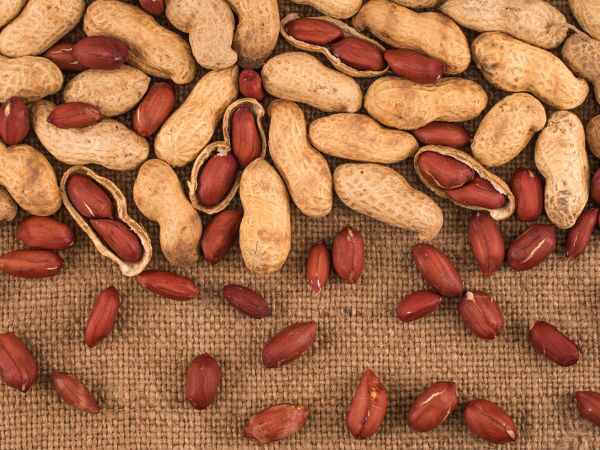Just In
- 36 min ago

- 3 hrs ago

- 5 hrs ago

- 7 hrs ago

Don't Miss
- Movies
 Varshangalkku Shesham Box Office Collection: Vineeth Sreenivasan's Film Shines; Makes Over Rs 50 Crore
Varshangalkku Shesham Box Office Collection: Vineeth Sreenivasan's Film Shines; Makes Over Rs 50 Crore - Finance
 1:6 Split: Metal Giant Vedanta Shares Hit New 52-Week High On Big Announcement; Splitting Up By Dec-2024
1:6 Split: Metal Giant Vedanta Shares Hit New 52-Week High On Big Announcement; Splitting Up By Dec-2024 - Education
 IIT Madras Introduces International master's course on Water Security and Global Change
IIT Madras Introduces International master's course on Water Security and Global Change - Technology
 Realme C65 Reportedly Launching Soon in India - Check Expected Price & Specs
Realme C65 Reportedly Launching Soon in India - Check Expected Price & Specs - News
 ED Attaches Actress Shilpa Shetty's Juhu Flat, Raj Kundra's Properties In Money Laundering Case
ED Attaches Actress Shilpa Shetty's Juhu Flat, Raj Kundra's Properties In Money Laundering Case - Sports
 Why is Dhanashree Verma not attending IPL 2024 matches of husband Yuzvendra Chahal?
Why is Dhanashree Verma not attending IPL 2024 matches of husband Yuzvendra Chahal? - Automobiles
 Kerala Spearheads Revival of Iconic Double-Decker Trains in India
Kerala Spearheads Revival of Iconic Double-Decker Trains in India - Travel
 From Coconut Breaking on Head to Men Dressing as Women: 12 Unique Indian Rituals Explored
From Coconut Breaking on Head to Men Dressing as Women: 12 Unique Indian Rituals Explored
List Of Most Nutrient Dense Foods On The Planet: A Nutritionist's Views
Nutrient density, nutrient-rich and micronutrient dense refer to the number of beneficial nutrients in a food product in proportion to energy content, weight or amount of detrimental nutrients.
The world health organisation classifies and ranks foods by their nutritional composition. Food that is high in nutrients but relatively low in calories. Nutrient-dense foods contain vitamins, minerals, complex carbohydrates, lean protein, and healthy fats. Examples of nutrient-dense foods include fruits and vegetables, whole grains, low-fat or fat-free milk products, seafood, lean meats, eggs, peas, beans, and nuts.

Certain foods have a very rich nutrient profile and contain a wide variety of vitamin and minerals. The density of the nutrients is more, and they rate higher than their counterparts. However, even though these foods rate amongst the most nutrient-dense foods on the planet, an individual should not rely only on these to complete his having a variety of foods in our meals ensures we get a varied nutrient profile and avoid any deficiency of nutrients. A well-balanced meal includes foods from the five food groups, namely carbohydrates, proteins, fats, vitamins and minerals.
There is only a limited number of calories or food that we can consume in a day. It is wise to fill that calorie quota with a lot of nutrient-dense foods to fulfil our body's nutrient requirement.
Listed below are some of the foods that are extremely nutrient-dense and can be a part of the daily diet:
1. Salmon and Sardines: Fish, in general, is a nutrient powerhouse. But like all vegetables, all fish are not the same. Salmon is extremely rich in omega-three fatty acids, magnesium, potassium, selenium and B Vitamins.
a.
This
helps
protect
the
body
from
serious
ailments.
b.
Enhances
heart
health.
c.
Prevents
dementia
and
Alzheimers.
d.
Having
salmon
regularly
also
helps
prevent
depression.
2. Garlic: This versatile ingredient that can be a part of most dishes is rich in vitamin C, few B vitamins, calcium, potassium, copper, manganese and selenium. It also contains sulphur compounds.
a.
Many
studies
show
how
regular
intake
of
garlic
can
lower
blood
pressure,
reduce
the
LDL
(bad)
cholesterol
and
increase
the
HDL
(good)
cholesterol.
b.
It
helps
prevents
colon
and
stomach
cancers.
c.
Raw
garlic
also
acts
as
an
antibacterial
and
antifungal.

3. Almonds: They are rich in protein, fibre, vitamin E, calcium, copper, magnesium and riboflavin. They are also a source of iron, potassium, selenium, zinc and the B vitamins, niacin, thiamine and folate. 8-10 soaked almonds every day is sufficient for a healthy individual. Having them soaked is the best way to ensure we absorb all the nutrition from an almond.
a.
It
provides
us
with
a
good
variety
of
amino
acids,
thus
helping
in
muscle
recovery.
b.
They
help
lower
the
LDL
(bad)
cholesterol.
c.
Calcium
and
phosphorus
in
almonds
help
enhance
bone
health.
d.
Selenium
helps
fight
depression
and
anxiety.
e.
Vitamin
E
helps
the
cells
from
damage.
f.
Rich
in
fibre
and
proteins,
this
helps
manage
blood
sugar
from
fluctuating
and
is
a
great
snack
for
people
with
diabetes.
4. Cruciferous vegetables (broccoli, cabbage, cauliflower): Cruciferous vegetables are a good source of phytonutrients, rich in folate, vitamins C, E, and K, and fibre.
a.
They
help
lower
inflammation
and
reduce
the
risk
of
developing
cancer.
b.
They
contain
anticancer,
antibacterial
and
antiviral
effects.
5.
Chia
seeds:
These
seeds
are
a
storehouse
of
proteins
and
boast
of
a
complete
amino
acid
profile.
It
is
rich
in
Omega
3
fatty
acids,
carbohydrates
and
fibre.
It
is
rich
in
calcium
and
antioxidants
as
well.
a.
Few
studies
have
shown
a
regular
intake
of
chia
seeds
to
be
linked
to
better
heart
health.
b.
Rich
in
calcium,
these
seeds
are
a
great
replacement
for
dairy.
c.
They
help
contain
the
spikes
in
blood
sugar
levels.
6. Black kidney beans: These are legumes that have a high protein and fibre content. They have good amounts of iron, magnesium, phosphorous, calcium and zinc.
a.
The
high
amount
of
these
nutrients
ensures
good
bone
health
and
elasticity
of
joints.
b.
The
calcium,
magnesium
and
phosphorous
help
to
control
blood
pressure
naturally.
c.
High
fibre
helps
to
manage
insulin
spikes
and
control
blood
sugar
levels.
d.
The
fibre
is
also
a
pre-biotic
and
helps
to
maintain
a
healthy
gut.

7. Peanuts: Peanuts are a good source of healthful fats, protein, and fibre. They contain plenty of potassium, phosphorous, magnesium, and B vitamins. Despite being high in calories, peanuts are nutrient-rich and low in carbohydrates.
a.
Peanuts
are
very
rich
in
biotin
that
is
important
during
pregnancy.
b.
Whole
peanuts
with
skin
are
extremely
rich
in
antioxidants.
c.
Peanuts
contain
a
lot
of
heart-healthy
nutrients
and
protect
cardiovascular
health.
d.
Some
studies
indicate
that
peanuts
help
reduce
the
risk
of
gall
stones
as
regular
peanuts
consumption
helps
lowers
cholesterol.
8. Green leafy vegetables (spinach, kale, mustard greens): Dark, leafy greens are a good source of vitamin A, vitamin C, vitamin K, magnesium and calcium. They are rich in iron, dietary fibre and also have a low glycemic index. These are extremely rich in phytochemicals and B-carotene flavonoids.
a.
They
help
reduce
the
LDL
(bad)
cholesterol.
b.
The
low
glycaemic
index
help
reduce
the
sudden
blood
sugar
spikes
and
regular
intake
help
manage
blood
sugar
levels.
c.
Many
studies
show
that
leafy
greens
help
protect
against
cardiovascular
diseases
and
cancer.
d.
The
antioxidants
help
reduce
the
oxidative
damage
to
cells,
thus
helping
with
anti-ageing.
e.
Vitamin
A
helps
enhance
eye
health.
9. Walnuts: These nuts are a powerhouse of calcium, iron, proteins, potassium and magnesium and Omega 3 fatty acids.
a.
Helps
ease
inflammation
that
causes
heart
attacks.
It
also
helps
prevent
blood
clots.
b.
Helps
lower
the
LDL
(bad)
cholesterol
c.
It
helps
promote
the
good
bacteria
in
the
gut.
d.
Helps
manage
blood
sugar
levels
and
also
protects
against
certain
types
of
cancers.

10. Yoghurt: A good source of calcium and protein, yoghurt also contains live cultures called probiotics. These "good bacteria" can protect the body from other, more harmful bacteria. All health begins from the gut, and adding fermented foods is a great way to add the good living bacteria to your body. Homemade fresh curd is a great way to do that. This ensures that we have a well-functioning gut that expels toxins from the body regularly. The good bacteria help build immunity.
On A Final Note...
These are the top nutrient-dense foods. However, no superfood can make up for the body's nutritional needs. One needs to eat a wholesome meal with various variety to ensure the body gets all the nutrition it needs.
-
![Expert Interview: Nutritionist Explains The Connection Between Food, Skin And Beauty [Exclusive]](https://images.boldsky.com/fit-in/175x100/img/2021/07/res-i-1626950811.jpg) healthExpert Interview: Nutritionist Explains The Connection Between Food, Skin And Beauty [Exclusive]
healthExpert Interview: Nutritionist Explains The Connection Between Food, Skin And Beauty [Exclusive] -
 nutritionNutritionist Speaks About Food Labels And How To Read Them
nutritionNutritionist Speaks About Food Labels And How To Read Them -
 nutritionNutritionist Speaks On What Is Metabolism And How Does It Work?
nutritionNutritionist Speaks On What Is Metabolism And How Does It Work? -
 wellnessVitamins 101: What A Nutritionist Has To Say
wellnessVitamins 101: What A Nutritionist Has To Say -
 diet fitnessWeight Loss Tips That Are Science-Backed And Nutritionist Approved
diet fitnessWeight Loss Tips That Are Science-Backed And Nutritionist Approved -
 wellnessNutritionist’s View On Managing Your Health During The Festival Season
wellnessNutritionist’s View On Managing Your Health During The Festival Season -
 healthExclusive: New Year 2024: Let's Understand The Value Of Nutrition Resolution And Set Realistic Goals!
healthExclusive: New Year 2024: Let's Understand The Value Of Nutrition Resolution And Set Realistic Goals! -
 healthCan Eating These Foods Trigger Tumour Growth?
healthCan Eating These Foods Trigger Tumour Growth? -
 healthWeight Loss: 4 Habits That Make You Gain Weight And Not Burn Fat
healthWeight Loss: 4 Habits That Make You Gain Weight And Not Burn Fat -
 healthBudget-friendly Nutrition: How to Maintain a Healthy Diet without Breaking the Bank?
healthBudget-friendly Nutrition: How to Maintain a Healthy Diet without Breaking the Bank? -
 healthIndian Cuisine: A Natural Solution To Chronic Pain Through Nutrition
healthIndian Cuisine: A Natural Solution To Chronic Pain Through Nutrition -
 healthNational Nutrition Week 2023: Did You Know That These Nutrition Deficiencies Can Lead To Death?
healthNational Nutrition Week 2023: Did You Know That These Nutrition Deficiencies Can Lead To Death?


 Click it and Unblock the Notifications
Click it and Unblock the Notifications



